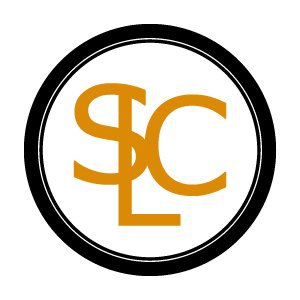We are a small mental health practice specializing in working with children, adolescents and adults struggling with anxiety, depression, executive functioning deficits and/or other social learning challenges.
SLC Social Cognitive Groups
Why do a social group at thE SLC?
Our Social Cognitive Groups are the cornerstone of the SLC. You will find low client/ clinician ratio (4/5 to 1), a strong foundation in Social Thinking methodology (www.socialthinking.com), community-based outings, and a strong parent involvement. We run both a Fall and Winter semester for 12-14 weeks each. A shorter Spring semester can be provided if there is interest.
Dr. Abildgaard, who has been a part of the Social Thinking community, since 2008, published with Michelle Winner, and who has created social programs for over 15 years is personally involved with all programs taking place at the SLC. We now have various programs and groups for individuals ages 3-adulthood! All participants will learn new social concepts, practice those concepts and social behaviors, be given on-the- spot feedback, and will identify with others who struggle with navigating the social world.
Group members are matched on their cognitive and language-based abilities, not just chronological age. You will not find large variability in the functioning levels of our participants as it would impact the efficacy of our program.
SOCIAL SKILLS VS. SOCIAL COGNITION
Social skills are those static social behaviors we engage in when in the presence of others. Some examples of social skills are greetings, holding the door open for others, not getting to close to someone whom we just met, etc. Here at the SLC, we run what we call “social cognitive groups”. Social cognition is all about the thinking that goes into us performing those social skills; why do we do those things people have taught us to do. It involves perspective taking, executive functioning, gestalt processing, emotional recognition and regulation, and social pragmatics. As written about by the Center’s friend and mentor to Chris, Michelle Winner talked about addressing social development from it’s “roots”, and that is what makes us here at the SLC different from other providers.
Don’t take our word for it! Click here to read about the experiences from other parents who have participated in our social cognitive groups for the past several years!
tYPES OF GROUPS AND WHAT TO EXPECT
NEW: Growing Social Programs
Through evidence-based practices, Growing Social is a child development framework for sharing, practicing and utilizing meaningful social, emotional and behavioral competencies. This groundwork serves as a steppingstone in developing essential social habits within the individual and family system.
The focus of our developmental framework will be to create activities and experiences for our youngest social leaners with a focus on competencies such as:
sharing physical space with others
collaborative play
developing one's imagination
joint attention skills
verbal problem-solving abilities
developmentally appropriate emotional regulation skills
Many of the concepts and activities will follow or have been adapted from the Social Thinking curriculum "We Thinkers” (www.socialthinking.comg/Products/WeThinkersVolume2DeluxePackage). This branch of the SLC will be led by our clinicians Nicole, Heather and Kristin with input and supervision from Dr. Abildgaard. To learn more about the creation and foundations of this new framework, check out our Growing Social page
Social Cognitive Groups: Elementary - Adolescents. The focus of these groups will be created based on the needs of the individuals. Concepts like relationship development, emotional regulation, anxiety strategies, social media, verbal and non-verbal communication, and how our social executive functioning skills all interplay with our social success can all be topics the groups explore. Social groups are carefully planned and put together based on the individual needs of the clients, not just age or grade.
Young Adult Classes/Groups: Ages 17 and over. Focus on a general theme or concept that is related to the social world they are encountering (work, higher education, relationships, driving, etc.).
And other groups:
In the past we have run groups for Young Women, social media and Executive Functioning. We try to meet the needs of our clients so if you have an interest in a more specific type of group, let us know!
Next Steps:
If you are interested in joining a social cognitive group and are a new client, please complete the group intake form and someone from the team will be in touch schedule an intake.



